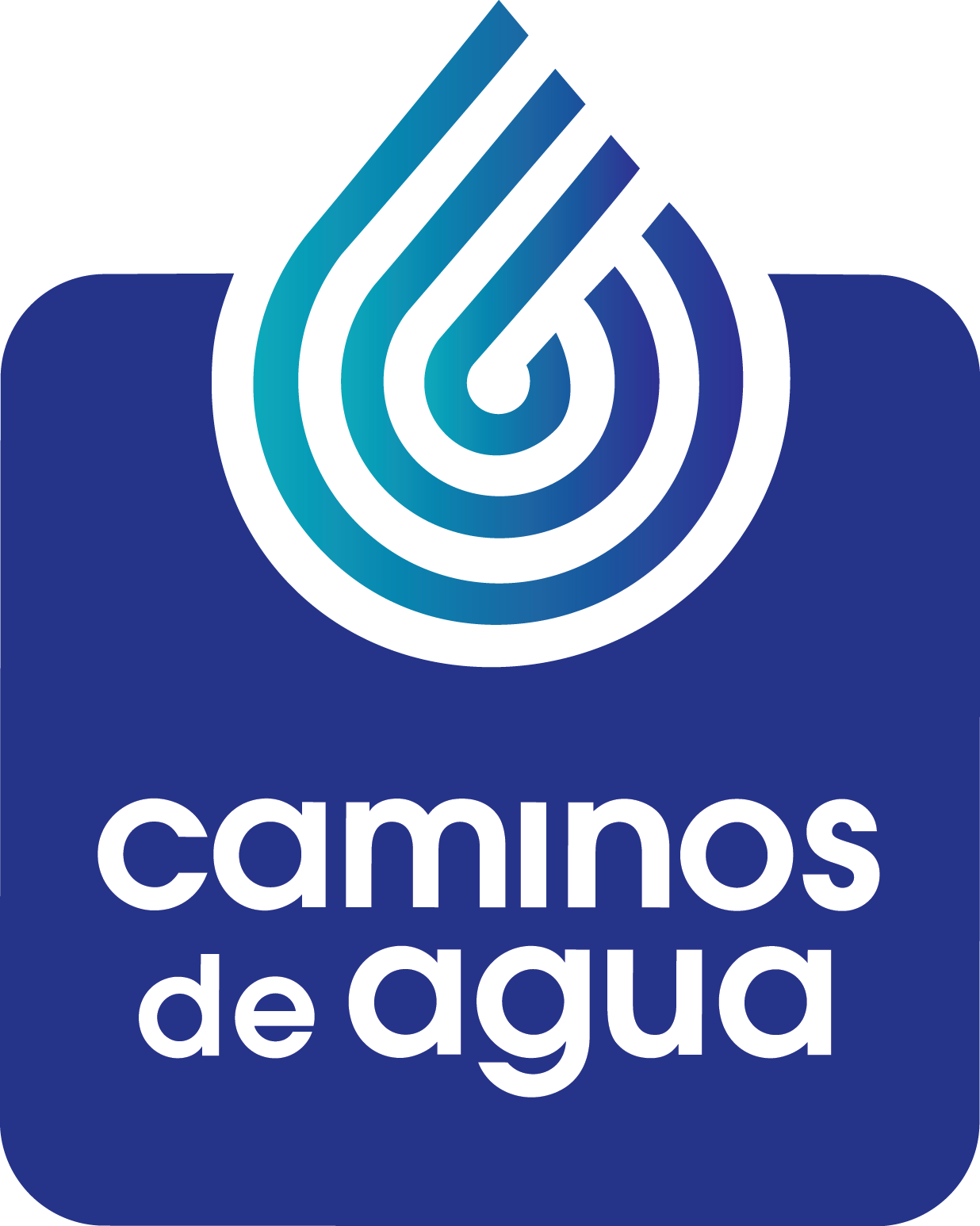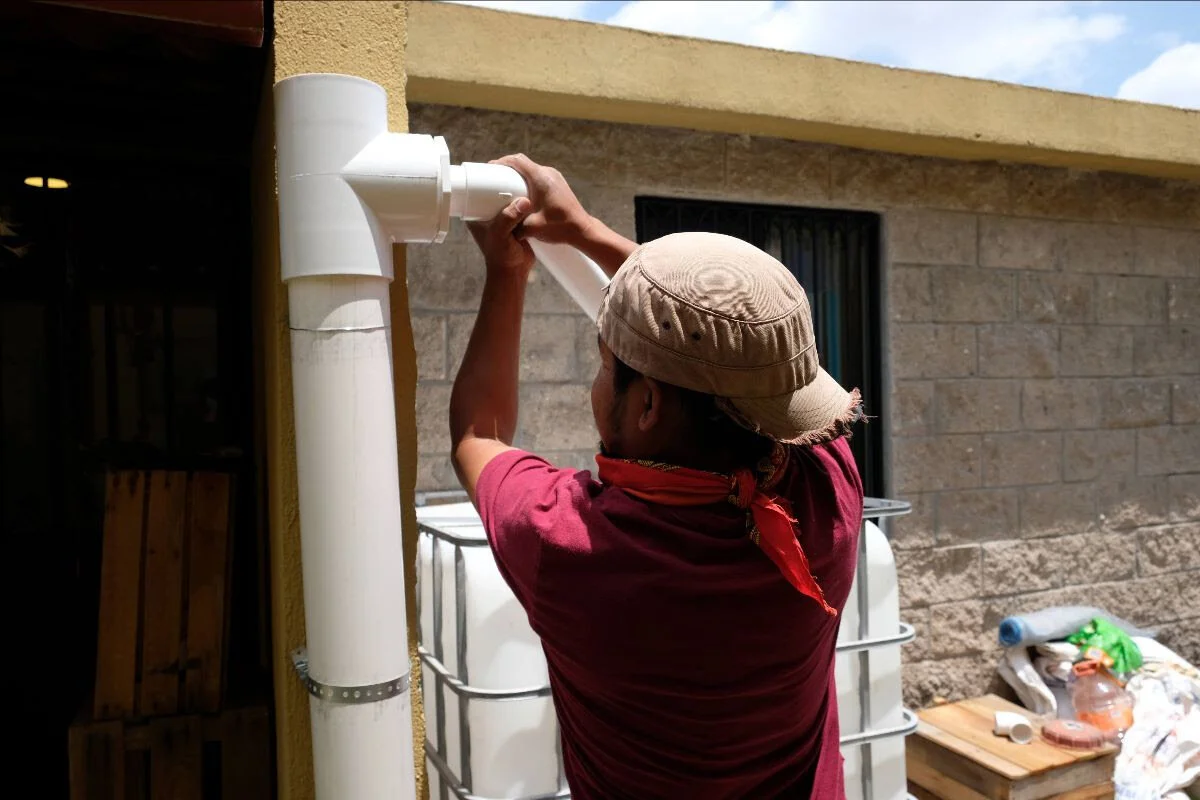It Affects Us All: The Urban Side Of Our Water Crisis
Photo: The Presa Allende (Allende Reservoir), the main water reservoir for the City of San Miguel de Allende, is pictured above in April 2021. The reservoir is suffering one of the worst water shortages in decades.
At Caminos de Agua, we’ve written to you many times to talk about the water crisis in our region and its devastating impacts on rural communities. But, because the crisis is increasingly affecting cities like San Miguel de Allende, it’s clear to us that the time has come to also really focus on educating residents about the current and future risks as well as what can be done on both personal and on community levels to assure the future of our finite water resources. We simply cannot ignore the urban side of our water crisis any longer.
Our watershed in northern Guanajuato where we do the majority of our work – the Upper Rio Laja – includes seven municipalities with several cities and approximately 2,800 rural communities. Water exploitation in the region is intensive and getting worse – due to the rapid growth of the agricultural export industry – and, as a result, water scarcity is already a major threat to the health of the roughly 680,000 people living in this region. The radical overuse of our water is causing the water table to decline 2-3 meters or more every single year. That is causing surface water and wells to dry up, many times almost overnight, which suddenly leave people with no source of water at all.
The water that is available is rapidly becoming more and more contaminated with arsenic, fluoride, and other contaminants. For some time now, people have been getting sick with different ailments such as dental and painful skeletal fluorosis (browning of the teeth and deformation and weakening of the bones), skin lesions, kidney disease, and a variety of cancers.
But many people seem to be unaware that San Miguel de Allende, and the other cities in our watershed, depend on this exact same water and are in no ways spared from these extremely complex problems.
Photo: Saúl Juárez, Caminos de Agua's Community Project Coordinator, working on the construction of a Rainwater Harvesting System at a home in urban San Miguel de Allende.
This water crisis is affecting much of Mexico, but our region is being hit especially hard. In fact, in 2013, the Permanent Peoples’ Tribunal, an international human rights ethical body, stated:
"Given the seriousness of the cases reported regarding over-exploitation and contamination of surface and groundwater, and its impact on people and ecosystems, it is recommended that the Mexican government...declare [the entire Upper Río Laja Watershed region] an emergency zone due to the environmental and health risks."
Further, as these issues continue to increasingly affect urban areas, there is no time to lose in building awareness and educating residents in our increasingly affected cities. To achieve this critical goal, Caminos de Agua is starting a new “Urban Education Initiative,” which we will launch in San Miguel de Allende in September of this year. We will be sharing the results of our Urban Water Monitoring Program by neighborhood, conducting community workshops, building model solutions designed for urban residents, distributing new educational materials, and more, in an effort to help community members understand what their current circumstances are as well as how to organize and begin taking action.
The costs of building this initiative and executing it are many, but the need for decisive action is rapidly increasing, and we cannot wait. So, we are asking all those who are stakeholders in the San Miguel community, and all those who love San Miguel as the special and unique place it is, to contribute to our special fund to help us make this important program possible.
I know many of you already provide financial support to Caminos de Agua, and I want to thank you, again, for your incredible generosity that keeps us moving and our mission alive. But if you can, please click the “donate now” button below and make an investment in the future of San Miguel. As always, the Caminos team and I are available to answer any questions you might have. Just respond to this email directly, and one of us will be in touch with you as soon as possible.
Over the next few weeks, we will be publishing stories that illustrate a different face of the water crisis of urban San Miguel through the lens of the residents who live here. We will be sharing their opinions, their struggles, and their victories.
On behalf of the entire Caminos de Agua team, thank you for your support and your interest in these critical matters.
Dylan Terrell
Executive Director



